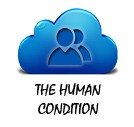 |
||
   
Balancing Act: The Newsletter (No. 228, August 2018) BALANCING ACT: BLENDING LIFE, WORK, AND RELATIONSHIPS® Balancing Act® is our registered trademark. You are encouraged to share the contents with others with appropriate attribution. Please use the ® whenever the phrase "Balancing Act" is used in connection with this newsletter or our workshops. Balancing act is in four sections this month: 1. Techniques for Balance 2. Musings 3. The Human Condition: Reckless Driving 4. ORTIYKMWOYBNT-O Department Connect with me on Facebook, Twitter and LinkedIn. Free consulting newsletter: The Million Dollar Consulting® Mindset: Listen to my new, free Podcast Series on iTunes or on ContrarianConsulting.com: The Uncomfortable Truth. We are now on a WEEKLY schedule!  • If we can’t consider others’ ideas, why should they consider ours? • Some people don’t realize there’s a distinction between a suggestion and an order. • One morning at our vacation house, I found we had no power. So I walked outside and listened for air conditioning condensers. When I heard none, I knew it was the neighborhood, not just us. • Get your most unpleasant task over as early as practical in the day. If all you have are unpleasant tasks, change your day (or your job). • I am a huge fan of Billy Joel. But have you seen him recently? It’s a good reason to take better care of yourself. • How many times did you say “thank you” or “you’re welcome” yesterday? (“No problem” doesn’t count.) • Take 30 minutes and identify everything you can outsource which you hate doing (e.g., airline reservations, cashing-in frequent traveler points, mowing the lawn, writing blog posts—whatever). And then find the right resources to unload them. • One thing I’ve learned from computers: Whenever something stops working, I unplug it or turn it off and then start it up again before trying any other remedies, including my car. Sometimes it solves the problem and I don’t have to understand why. • If you’re having cash flow problems what you really have are income problems and, if you’re in business for yourself, marketing problems. (Kudos to Phil Symchych for pointing this out.) • I learned when I was a student that teachers weren’t always right. Check occasionally on what your kids are learning and being told in school.  I’m sitting on the beach all alone at about 8:45 in the morning, just the way I like it. The breakers are pounding away on the shore, a couple of fishing trawlers are heading east, and all kinds of birds are out seeking breakfast. I notice one huge gull, beak opened to maximum capacity, carrying a small crab, dipping it in the water periodically, as though it’s blue cheese dressing. Suddenly I realize that it’s a good thing I had breakfast back at the house which, although on the beach, is a good 150 yards away. (New Jersey has great beaches, which have acres and miles of sand. New England thinks it has beaches, but what it actually has are rocks on the coast.) I can’t just “stop in” for a snack. (Though I can call my wife on my cell phone.) This gull has found a decent breakfast and is taking its time preparing it, I assume. These gulls live 10-15 years in the wild, through Jersey winters, and despite all kinds of human activity amongst them. You don’t see them as much in dumpsters here, as you do in Boston or Providence. These gulls know they can find fresh food (though they’ll still dive bomb to grab French fries). So I’m this sophisticated, powerful guy sitting on the beach who, at the moment, can’t even feed himself from his surroundings while these gulls can. Nor can I halt the eternal waves pounding the shore, nor keep the sand off my chair, nor control the wind and sun out there. I watch a guy way off in the distance casting his fishing line repeatedly into the surf with no results. The gulls make him look pathetic. All the gulls I can see are fat and clean. They look healthy. They have a way of walking around searching for things in the sand while knowing just how close they can get to humans while still able to easily take flight. (When gulls are "grounded” on a golf course, or beach, or school lawn, note that they all face the same way—into the wind, which allows for quicker takeoffs, no different from planes on an aircraft carrier.) I realize that the gulls would eat my lunch happily when my wife comes down with it to spend the rest of the day. But there’s no way I’d ever touch that crab that this gull near me is now picking apart. I need some perspective. I’m the intruder here. We’re all quite far from “masters of the universe.”  We recently drove the 240 miles from Rhode Island down to our rental on the Jersey Shore (Point Pleasant). It’s generally a pretty good trip, what with the car’s navigation system and the app Waze, with occasional and brief delays on the Garden State Parkway. Quite a few drivers weave in and out of traffic trying to gain a few car lengths, and we inevitably pass them sooner or later just staying in one lane. Some others tailgate within a few feet, as if that’s going to get them anywhere sooner. What’s startling is that, despite the experience that none of this makes a difference, they consistently engage in it, and probably have for 20 years or more. I think this is a factor of insecurity. The lack of control that people fear in their lives is exacerbated by traffic jams which are often unpredictable and unavoidable. The rational and sane responses—chat with whomever you’re with, listen to music or talk radio, think about life—aren’t enough for some people to overcome their “bad luck,” or “if only people knew how to drive” mentalities. The idea, I think, is to maximize our control of what we reasonably can control, beginning with our temperament and patience, and including our judgment and decision making. But railing against the weather or the traffic or the vagaries of the internet just increases the feeling of helplessness. Control what you can reasonably control. Don’t attempt to control or curse what you can’t. Otherwise, you may be weaving in and out of life, tailgating your existence, and not only will that not get you anywhere faster, but it will probably result in a crash.  My wife went to Staples and promised to buy copy paper for me among her purchases because I had used the last ream I had in storage. She told me later that she had done so. When the time came to load the copier again, I couldn't find where she had left the packages. I looked in the truck and the trunk of the car. I checked the kitchen and the garage. Finally, when she returned from a meeting, I asked if she had left them at the store. “They're in the cabinet under the copier,” she said, “isn't that where you store them?” That was obviously the last place I would've looked. 
Don't forget to share this on social media: Having problems viewing this email? Click here. © Alan Weiss 2018 |
Balancing Act® is our registered trademark. You are encouraged to share the contents with others with appropriate attribution. Please use the ® whenever the phrase "Balancing Act" is used in connection with this newsletter or our workshops.

Trying to help people who don’t want to be helped is like leaving the landing lights on for Amelia Earhart: a nice gesture, but pointless. Alan Weiss |
|

